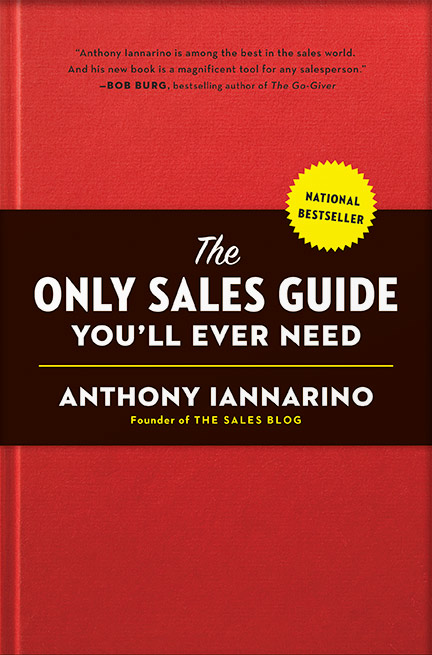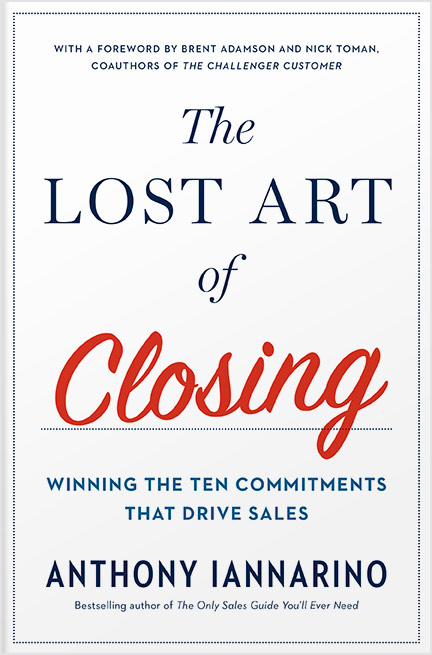The Gist:
- Most salespeople view questions mainly as ways to acquire information, a constraint which limits their value.
- Questions can provide both value and information, including teaching your client something that will enable better results.
- Questions are one of the most powerful ways to transfer your insights to your clients.
Questions often have a larger impact than mere statements, something we have known since Plato documented Socrates’ approach to helping people understand moral and philosophical questions. There is more value in questions than most realize, and they do much more than provide you with information.
Some salespeople believe that within the sales conversation, the purpose of a question is to uncover a “hot button,” a “pain point,” or something that rises to “dissatisfaction.” While this approach is popular, it is a limited way to look at the value of questions for sharing your insight and creating a preference to buy from you.


Turning on Your Client’s Lights
One of the biggest oversights in how we teach, train, and develop salespeople comes from our very limited view of questions, which often relegates them to discovery or other early sales conversations. While no one would doubt the need to ask questions during discovery, few realize how powerfully a question can teach their prospective client something they need to know to produce better results. A single well-timed, well-constructed question can turn on your client’s lights and let them see something for the first time.
Questions are a powerful way to create value for your clients by teaching them something. Your questions can expose a gap in your client’s knowledge and experience, one that you are prepared to fill for them as a consultative salesperson. Here’s a question that works the same way: “What are the three most important competencies you need to improve to create and win more big deals?” Go ahead and write down your answers. I’ll wait for you.
Even if you’ve seen that question before, it’s unlikely that you sat down and answered it. If you did, congratulations—you just discovered something about yourself and your results! In a conversation with your client, that question might sound like this: “What adjustments did you make to your strategy in this area over the last twelve months, and have you began thinking about what you are going to need to do over the next twelve to eighteen months?” Your client may recognize that they didn’t make any changes and that they really need to make the decisions necessary to improving their performance, but they can still save face if they haven’t yet started to work on this year’s initiatives.

Questions That Help Buyers Buy
Some of the most important questions you need to ask can also teach your contacts how to make good decisions and produce better results. Not very many salespeople are taught to “control the process,” helping the client to have all the critical conversations and to commit to a series of meetings that lets them get better at getting better. In fact, most of the questions salespeople ask come off as self-oriented. Unless you have read The Lost Art of Closing, you may not even be aware of the strategies and language choices that make every conversation about the client and what they need to do—and why they need to do it.
If there is a gap in what questions we ask and how we ask them, then it is surely to be found in the area of building consensus, one of the most difficult outcomes for your contacts to achieve, something close to the Triple Lindy in diving. Here is a question you might ask that teaches your client something about consensus, while also helping them to recognize (and avoid) a mistake that may stop or stall their initiative: “Who is going to be unhappy that they weren’t included in this conversation and may try to oppose what you are trying to do? And how and when do we need to address any concerns they might have?”
When it comes to helping clients justify investing more in their solution, you might ask something like, “Have you done an analysis of the soft costs that are not going to show up in the price but that increase your overall costs? If you haven’t, can I share a version that we could populate with your data to explain why it makes sense to spend a little more than you’re spending now?” Again, your questions can provide a new, clear view of the decision the client is making and allow you to create value for them (the best way to create value for your contacts).


Expanding Your Repertoire
You will always need to ask questions to acquire information about the problems your clients need you to help them solve. But that is a limited view of questions, one that leaves out some of the more important outcomes in a modern sales approach, one that is built on transferring your insights and experience to your clients.
Almost anything you might say to move a client could be better done with a question, though you may want to stop short of shining a light in their eyes and demanding to know their alibi for last Thursday. You can sprinkle in some statements that also provide you the opportunity to create better outcomes, like: “Here’s an idea you might want to look at before we have another conversation. If it might work for you, we’d need to bring in a couple people from our teams to explore it.” There was no question here, but the statement just exposed another gap the client was unaware of before your conversation.
Better questions make for better sales conversations. They also create greater value than “What’s keeping you up at night?”
Do Good Work:
- Examine your standard questions. How many do you ask that provide your clients with insights?
- What percentage of your questions are designed to achieve an outcome other than gaining information?
- What do you need so you can teach your contacts to turn on their lights?

Essential Reading!
Get my 2nd book: The Lost Art of Closing
"In The Lost Art of Closing, Anthony proves that the final commitment can actually be one of the easiest parts of the sales process—if you’ve set it up properly with other commitments that have to happen long before the close. The key is to lead customers through a series of necessary steps designed to prevent a purchase stall."
Buy Now







.jpg?width=768&height=994&name=salescall-planner-ebook-v3-1-cover%20(1).jpg)


